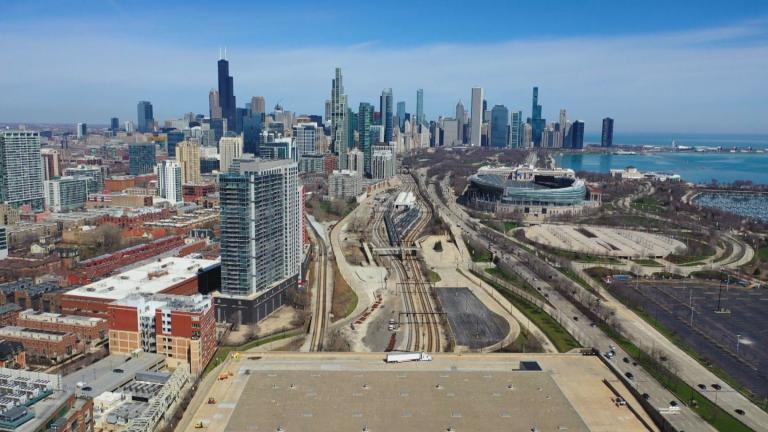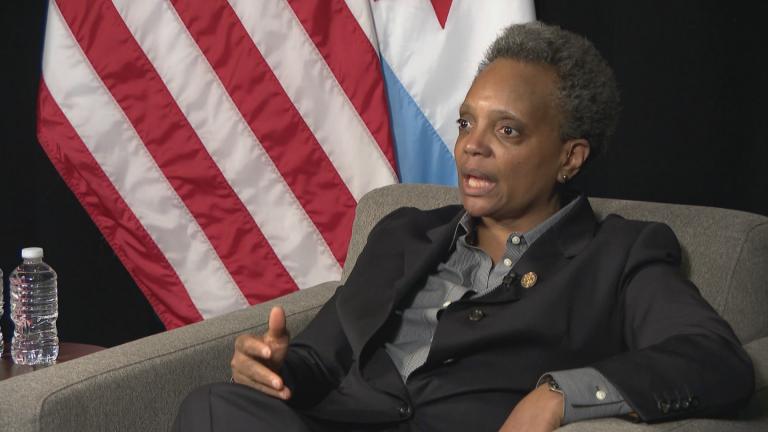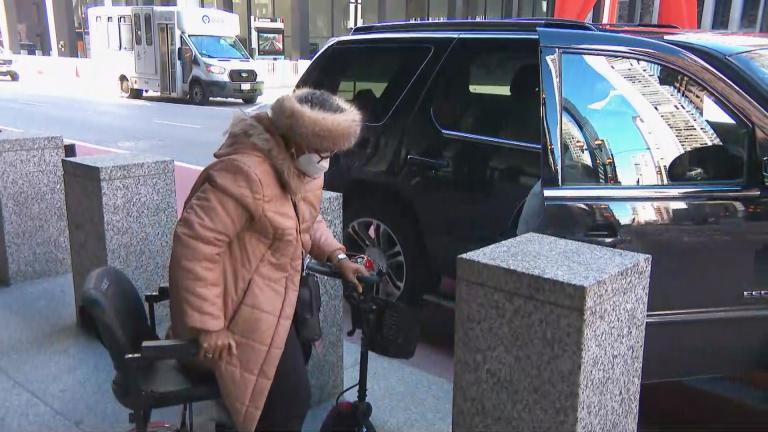City officials are ready to resume installing water meters in Chicago homes, nearly three years after Mayor Lori Lightfoot halted the work amid concerns that it was causing lead to pollute the drinking water in hundreds of thousands of residences, officials told WTTW News.
In an interview with “Chicago Tonight” Tuesday, Department of Water Commissioner Andrea Cheng said officials are confident both regular and ultrasonic water meters can be safely installed in Chicago homes without threatening the health of residents.
City officials launched a study in 2020 to see whether ultrasonic meters would not disturb anti-corrosion coating in lead pipes to the same extent traditional meters did, Cheng said. Ultrasonic meters have no moving parts, unlike traditional meters, Cheng said.
An effort to test the ultrasonic meters in 200 homes was delayed by the COVID-19 pandemic, but Cheng said there is now ample evidence that both traditional and ultrasonic meters can be safely used.
To ensure that Chicagoans don’t drink water tainted by lead, meter-installation crews will fully flush all of the taps in the home to gurantee that any lead particles that leached into the water during the installation of the meter — which requires that the lead service line be cut, disturbing a white coating that prevents corrosion — are removed from the system, Cheng said.
“The amount of water usage and flushing that people do in their homes is critically important to lead levels,” Cheng said.
If water in a home has not been used for six hours, residents should allow cold water to flow from a tap for 15-30 seconds to flush any lead, according to guidance from the EPA.
The study found that homes where a relatively low amount of water was used had the highest concentration of lead in the water, Cheng said.
The city plans to set up a system to notify residents with a meter if their water has not been used for six hours and remind them to flush the system before drinking or bathing, Cheng said. The city already notifies those whose home may be the site of a water leak or burst pipe, she added.
Those who have a meter installed will get free water testing and drinking water filters, Cheng said.
“We’re really happy to find some resolution here and move the program forward,” Cheng said.
The city’s study found that the installation of meters had relatively little impact on the amount of lead in a home’s drinking water, Cheng said. A bigger concern is the amount of water moved through the home’s water system every day and the temperature of the water, Cheng said.
There is no difference in the amount of lead that can leach into a home’s water after a traditional meter is installed as compared with an ultrasonic meter. An ultrasonic meter is smaller than a traditional meter, Cheng said.
“The upshot of it all is that we need to worry less about the meter installation itself and the flushing that we’re doing right after,” Cheng said. “Really, what we are seeing is that the important issue we need to be talking about here is flushing and water usage in the home overall. That is going to be a much bigger driver of lead levels than meter installation or disturbances.”
Meters allow residents to pay per gallon for the water that they use, rather than pay a flat fee.
Mayor Lori Lightfoot plans to introduce a measure at Wednesday’s City Council meeting that would reestablish the cap on water payments for households that agree to have a meter installed to ensure they do not pay more than the flat fee for seven years, Cheng said.
Meters can reduce a $1,200 water bill by nearly half, while saving water, Cheng said.
Lightfoot will also ask the City Council to codify her policy of not shutting off a residents’ water service for nonpayment and to approve a ban on the privatization of the city’s water system, Cheng said.
Lightfoot ordered the installation of water meters in Chicago homes to stop in July 2019 after city officials found elevated levels of lead in more than one in five metered homes they tested — 13 months after officials first learned of the issue.
Lightfoot’s order reversed a decision made by former Mayor Rahm Emanuel in November 2018 to continue installing water meters in homes, despite evidence that those homes had elevated levels of the brain-damaging chemical.
A 2013 study by EPA researchers linked the installation of meters and the replacement of water mains to high amounts of the heavy metal in drinking water, because lead pipes that are disturbed by street or plumbing work can release the material into the water supply.
Data gathered as part of a study of 510 Chicago homes in 2019 found that 22% of residences with new water meters had elevated levels of lead, the mayor’s office announced. Of those homes, 7.1% had lead levels above the 15 parts per billion action level set by the EPA, officials said.
Nearly 130,000 Chicago homes already have water meters, which were touted by city officials as a way to reduce water usage and save money.
For more information about water meters in Chicago, go to metersave.org.
Approximately 400,000 Chicago homes have lead service lines. Lead service lines connect more Chicago homes to water mains than in any other American city, in large part because officials required that lead pipes be used to funnel water to single-family homes and small apartment buildings for nearly a century.
Federal law banned the use of lead pipes in 1986.
Lead can enter drinking water when service pipes that contain lead corrode.
There is no safe level of lead in drinking water, according to federal officials. Lead is a neurotoxin and can be especially damaging to children and pregnant women.
City officials estimate that it will cost $15,000 to $26,000 to remove lead service lines from each home or two-flat in Chicago, or $8.5 billion in all. In September 2020, Lightfoot vowed to begin removing lead service lines from Chicago’s homes.
City crews have only removed 74, according to data provided to WTTW News.
Contact Heather Cherone: @HeatherCherone | (773) 569-1863 | [email protected]








